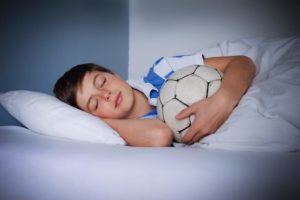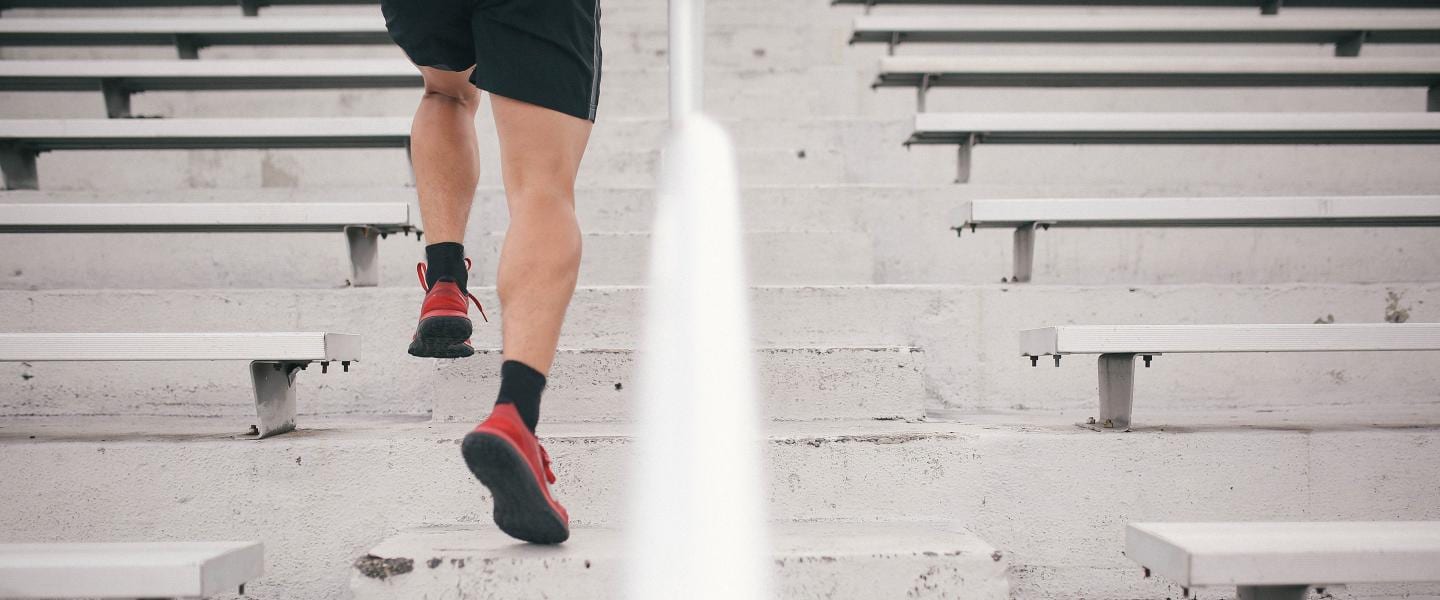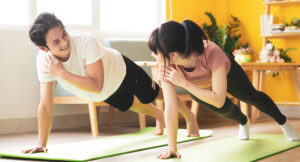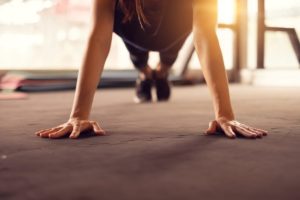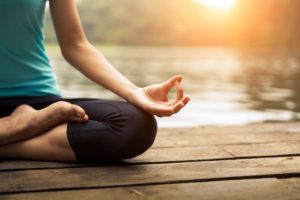Should I Nap Right After My Workout?
There are pros and cons to taking a nap after a workout. Although a well-timed nap may improve alertness, memory, and athletic performance, a nap may also make it more difficult to fall asleep at bedtime.
Learn more about the science behind feeling sleepy after a workout, find out if post-workout naps are right for you, and get some tips for maximizing the benefits of a nap.
Why Do I Feel Sleepy After a Workout?
Feeling sleepy after a workout may be a symptom of exercise-induced fatigue .
Fatigue describes feeling weak or mentally drained and is a normal reaction to physical activity. While experts are still uncovering exactly how exercise leads to fatigue , research suggests that a post-workout dip in energy may be caused by changes in the nervous system.
The nervous system controls communication between the brain and other areas in the body. It is made up of two parts, the peripheral nervous system and the central nervous system, both of which may play a role in the development of fatigue.
Peripheral fatigue is a term for fatigue that occurs due to changes in the muscles themselves. Exercise involves repeated muscle contractions that require energy to perform. Muscle contractions are fueled by a molecule called adenosine triphosphate (ATP). When exercise depletes ATP in the muscles , peripheral fatigue may follow.
Muscle contractions also produce byproducts called metabolites from the breakdown of ATP. As metabolites build up in the muscles during exercise, they begin to interfere with muscle contractions and contribute to peripheral fatigue.
Central fatigue is a term that describes fatigue resulting from the effects of exercise on the central nervous system (CNS) . Exercise changes the concentration of substances called neurotransmitters in the CNS, which then trigger feelings of fatigue and tiredness.

Napping After a Workout: The Pros and Cons
Since a workout may result in fatigue and sleepiness, many people consider taking a nap right after they finish exercising. Before lying down for a post-workout nap, it may be helpful to weigh out the pros and cons.
The Pros of Napping After a Workout
Napping offers many benefits that are supported by strong scientific evidence .
- Reduces fatigue: Napping is not a replacement for quality sleep, but it can temporarily decrease fatigue and increase alertness.
- Improves memory: While both exercise and a nap can enhance memory, research suggests that benefits may be even greater when a workout and a nap are combined.
- Supports muscle repair: Losing sleep can interfere with performance and inhibit muscle recovery after exercise. Naps can help people get the rest needed to repair muscle tissue, build muscle, and get ready for their next workout.
The Cons of Napping After a Workout
Napping right after a workout also has several potential drawbacks.
- Causes grogginess: Naps can make a person feel groggy and disoriented after waking up, a phenomenon known as sleep inertia. Experts believe that sleep inertia may result from interrupting the sleep cycle and waking up during deep sleep.
- Interferes with nighttime sleep: Taking a nap may reduce the quality of nighttime sleep. Research shows that frequent napping is linked with poor sleep quality and more frequent nighttime awakenings.
- May indicate overtraining: Feeling the need for a post-workout nap can be a sign of overtraining. Resting between workouts helps the body recover and grow muscle tissue, but feeling constantly tired and having trouble sleeping at night could be signs to slow down or take a break from workouts.
The Link Between Naps, Exercise, and Sleep
Sleep is just as important to health as food and water. Although naps have several drawbacks and are not a substitute for getting a full night’s sleep, they can help combat the effects of sleep loss, temporarily enhance feelings of alertness, and improve athletic performance.
Regular exercise benefits the body and mind, promoting brain health while reducing the risk of chronic diseases like obesity, heart disease, diabetes, and osteoporosis. Exercise also improves sleep by lowering the time it takes to fall asleep and encouraging more deep sleep.
Do Post-Workout Naps Help With Weight Loss?
There is no evidence to support the idea that napping after a workout promotes weight loss. Naps may help weight loss in indirect ways though, as research shows that naps may improve athletic performance. Inadequate and poor-quality sleep is linked to weight gain, an increased risk of obesity, and worse results from dieting .
Tips for Post-Workout Napping
If you decide to take a nap after working out, consider several tips to get the most out of your rest.
- Keep it short: While there is no perfect length for naps, some experts suggest keeping naps between 20 and 90 minutes. A 20-minute nap reduces the risk of feeling groggy from waking up during deep sleep, while a 90-minute nap may allow you to get through a full sleep cycle.
- Avoid late afternoon: Taking a nap too late in the day might make it harder to fall asleep at bedtime. Research suggests that the best time for a midday nap is between 1 p.m. and 3 p.m.
- Block out light and noises: Bright light and loud noises can make it more challenging to fall asleep at nap time. Try using earplugs and an eye mask to reduce unwanted distractions.
- Give yourself time to wake up: Grogginess from sleep inertia usually lasts less than 30 minutes, but can continue for 60 minutes or longer. To wake up more quickly after a nap, try washing your face or spending time in bright light.
- Consider a coffee nap: A coffee nap is another way to avoid grogginess after waking up. A coffee nap involves consuming around 100 to 200 milligrams of caffeine, or one cup of coffee, prior to a short nap. Caffeine takes around 30 minutes to kick in, so you may wake up from your nap feeling more alert and energized.

Still have questions? Ask our community!
Join our Sleep Care Community — a trusted hub of sleep health professionals, product specialists, and people just like you. Whether you need expert sleep advice for your insomnia or you’re searching for the perfect mattress, we’ve got you covered. Get personalized guidance from the experts who know sleep best.
References
9 Sources
-
A.D.A.M. Medical Encyclopedia. (2021, April 24). Fatigue. MedlinePlus., Retrieved August 29, 2022, from
https://medlineplus.gov/ency/article/003088.htm -
Tornero-Aguilera, J. F., Jimenez-Morcillo, J., Rubio-Zarapuz, A., & Clemente-Suárez, V. J. (2022). Central and peripheral fatigue in physical exercise explained: A narrative review. International Journal of Environmental Research and Public Health, 19(7), 3909.
https://pubmed.ncbi.nlm.nih.gov/35409591/ -
Baker, J. S., McCormick, M. C., & Robergs, R. A. (2010). Interaction among skeletal muscle metabolic energy systems during intense exercise. Journal of Nutrition and Metabolism, 905612.
https://pubmed.ncbi.nlm.nih.gov/21188163/ -
Wan, J. J., Qin, Z., Wang, P. Y., Sun, Y., & Liu, X. (2017). Muscle fatigue: General understanding and treatment. Experimental & Molecular Medicine, 49(10), e384.
https://pubmed.ncbi.nlm.nih.gov/28983090/ -
Taylor, J. L., Amann, M., Duchateau, J., Meeusen, R., & Rice, C. L. (2016). Neural contributions to muscle fatigue: From the brain to the muscle and back again. Medicine and Science in Sports and Exercise, 48(11), 2294–2306.
https://pubmed.ncbi.nlm.nih.gov/27003703/ -
National Institute for Occupational Safety and Health. (2016, July 15). Napping, an important fatigue countermeasure. Centers for Disease Control and Prevention., Retrieved August 29, 2022, from
https://www.cdc.gov/niosh/emres/longhourstraining/napping.html -
Mograss, M., Abi-Jaoude, J., Frimpong, E., Chalati, D., Moretto, U., Tarelli, L., Lim, A., & Dang-Vu, T. T. (2022). The effects of napping on night-time sleep in healthy young adults. Journal of Sleep Research, e13578., Retrieved August 22, 2022, from
https://pubmed.ncbi.nlm.nih.gov/35253300/ -
National Center for Chronic Disease Prevention and Health Promotion, Division of nutrition, physical activity, and obesity. (2022, June 16). Benefits of physical activity. Centers for Disease Control and Prevention., Retrieved August 29, 2022, from
https://www.cdc.gov/physicalactivity/basics/pa-health/index.htm -
Nedeltcheva, A. V., Kilkus, J. M., Imperial, J., Schoeller, D. A., & Penev, P. D. (2010). Insufficient sleep undermines dietary efforts to reduce adiposity. Annals of Internal Medicine, 153(7), 435–441.
https://pubmed.ncbi.nlm.nih.gov/20921542/



